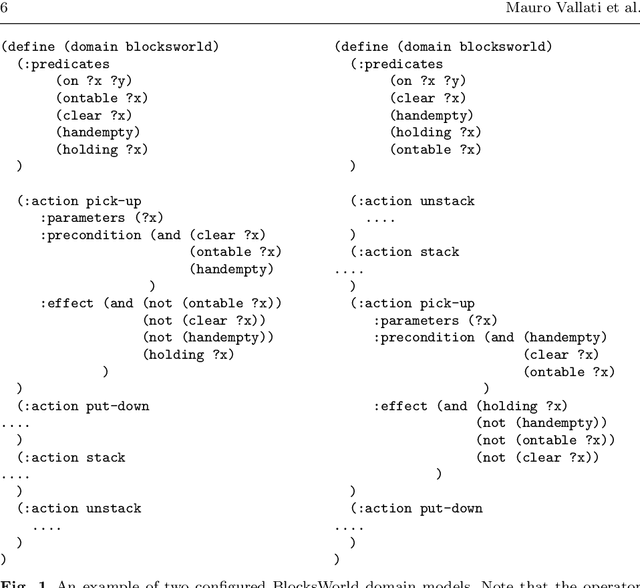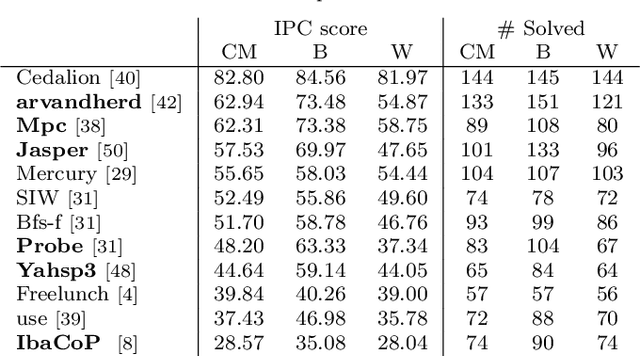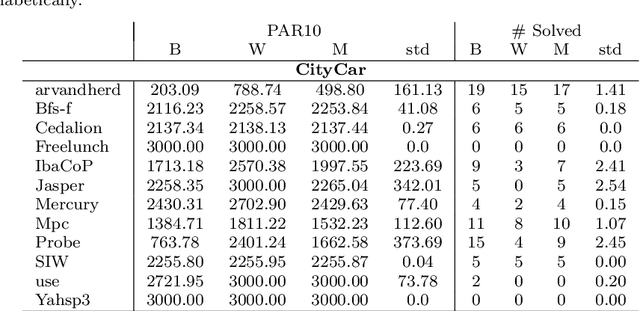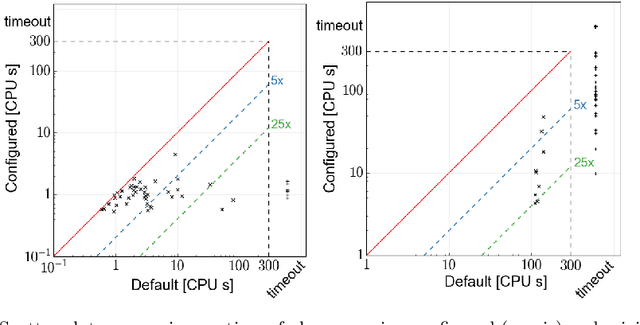On the Importance of Domain Model Configuration for Automated Planning Engines
Paper and Code
Oct 15, 2020



The development of domain-independent planners within the AI Planning community is leading to "off-the-shelf" technology that can be used in a wide range of applications. Moreover, it allows a modular approach --in which planners and domain knowledge are modules of larger software applications-- that facilitates substitutions or improvements of individual modules without changing the rest of the system. This approach also supports the use of reformulation and configuration techniques, which transform how a model is represented in order to improve the efficiency of plan generation. In this article, we investigate how the performance of domain-independent planners is affected by domain model configuration, i.e., the order in which elements are ordered in the model, particularly in the light of planner comparisons. We then introduce techniques for the online and offline configuration of domain models, and we analyse the impact of domain model configuration on other reformulation approaches, such as macros.
 Add to Chrome
Add to Chrome Add to Firefox
Add to Firefox Add to Edge
Add to Edge